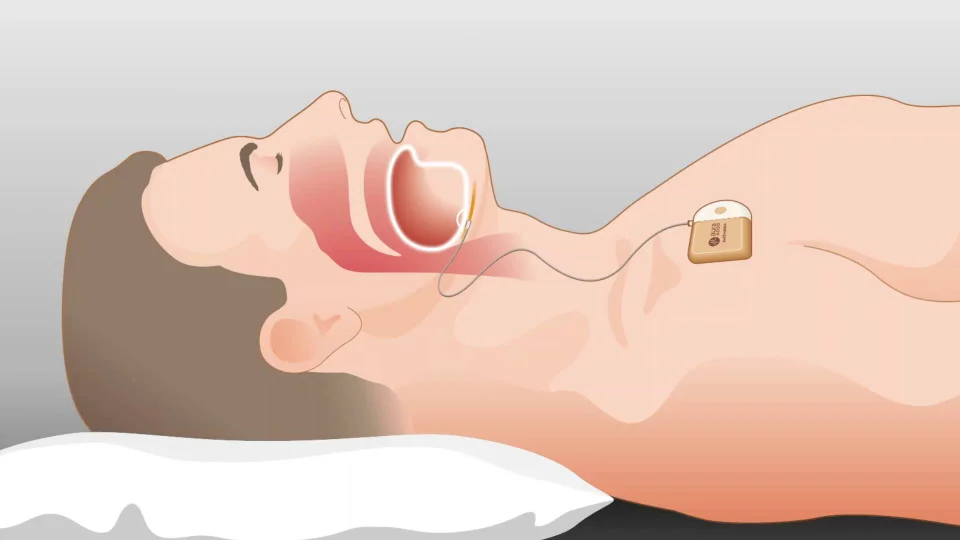Lack of sleep can impact overall health in many ways, and one of the most important ways is its effect on heart health. Studies have shown a clear connection between poor sleep and an increased risk of heart disease, stroke, and other cardiovascular problems. Understanding how sleep affects heart health and what steps can be taken to improve sleep and reduce this risk is important.
Sleep plays a role in numerous bodily functions that impact heart health, including blood pressure, inflammation, and glucose regulation. Studies have shown that those who consistently get inadequate sleep are at a higher risk of developing hypertension, a major risk factor for heart disease. In addition, poor sleep can lead to increased inflammation in the body, which has been linked to cardiovascular problems. Proper sleep is also necessary for the body to regulate glucose and insulin levels, which can help reduce the risk of developing Type 2 Diabetes, another risk factor for heart disease.
Taking steps to prioritize sleep quality, such as creating a relaxing bedtime routine and practicing healthy sleep habits, can significantly impact heart health outcomes.
The Link Between Poor Sleep and Heart Disease
Heart disease is the leading cause of death worldwide, and a growing body of evidence suggests that poor sleep may be a contributing factor. In recent decades, research has investigated the relationship between sleep and cardiovascular health, revealing several ways in which poor sleep quality or quantity may increase the risk of heart disease.
Lack of Sleep and Hypertension
High blood pressure (hypertension) is a major risk factor for heart disease, and poor sleep has been linked to an increased risk of developing hypertension. In adults, sleep deprivation can lead to increased blood pressure, especially at night when blood pressure naturally dips. Over time, chronic sleep deprivation may contribute to the development of sustained hypertension, increasing the risk of heart attack, stroke, and other cardiovascular events.
Disordered Sleep and Arrhythmias
Sleep-disordered breathing (SDB) is a broad term that refers to a range of conditions, including snoring and sleep apnea, that disrupt normal breathing during sleep. SDB has been linked to an increased risk of arrhythmias (irregular heartbeats), including atrial fibrillation. In individuals with sleep apnea, periods of low oxygen levels during the night may cause the release of stress hormones that can contribute to inflammation, insulin resistance, and other cardiovascular risk factors.
Sleep and Inflammation
Inflammation is a key contributor to the development of atherosclerosis, the buildup of plaque in the walls of arteries that can lead to heart attack and stroke. Several studies have found that people who report poor sleep quality or insufficient sleep tend to have higher levels of inflammatory markers in their blood. These findings suggest that poor sleep may contribute to the chronic inflammation that underlies many cases of heart disease.
Overall, while further research is needed to establish causality, the evidence suggests that poor sleep may increase the risk of heart disease and other cardiovascular events. Improving sleep hygiene and addressing sleep disorders may be important strategies for reducing this risk.
How Sleep Affects Heart Health
Many studies have shown that poor sleep quality can have negative effects on heart health. In fact, sleep-related problems have been identified as a risk factor for cardiovascular disease.
Increased Risk of High Blood Pressure
High blood pressure, or hypertension, is a common risk factor for heart disease. A lack of sleep, especially chronic sleep deprivation, has been associated with an increased risk of developing hypertension. Studies have shown that those who sleep less than 6 hours a night are at a higher risk of developing high blood pressure.
Disrupts Heart Rhythm
Certain sleep disorders, such as sleep apnea, can disrupt the heart’s normal rhythm. Sleep apnea is characterized by pauses in breathing during sleep and often leads to a drop in blood oxygen levels. This drop in oxygen levels can put additional stress on the heart and potentially lead to arrhythmias or irregular heartbeats.
Increases Inflammation
Sleep deprivation has been linked to increased inflammation throughout the body. Chronic inflammation is a known risk factor for heart disease as it can damage the blood vessels and lead to atherosclerosis. Atherosclerosis is the build-up of plaque in the arteries, which can cause blockages and increase the risk of heart attack and stroke.
Impairs Glucose Metabolism
Sleep deprivation has been shown to impair glucose metabolism and increase insulin resistance. This can lead to high blood sugar levels and ultimately increase the risk of developing type 2 diabetes and cardiovascular disease.
In conclusion, poor sleep quality can have negative effects on heart health in a number of ways. It is important to prioritize good sleep hygiene and get enough quality sleep to reduce the risk of developing cardiovascular disease.
The Role of REM Sleep in Cardiovascular Health
One of the most critical components of sleep is Rapid Eye Movement (REM) sleep. During REM sleep, your eyes move rapidly, and you experience heightened brain activity, which is essential for cognitive function and memory consolidation.
Research suggests that getting an adequate amount of REM sleep is important for maintaining cardiovascular health. One study found that individuals with more REM sleep had a lower risk of developing hypertension, a significant risk factor for heart disease and stroke.
Furthermore, a lack of REM sleep is associated with an increased risk of cardiovascular diseases. One of these conditions is atherosclerosis, which involves the buildup of plaque in the arteries, reducing blood flow to the heart.
During REM sleep, the body enters a state of deep relaxation, which may provide essential recovery time for the cardiovascular system, allowing a drop in blood pressure and heart rate and reducing stress levels.
To ensure that you are getting enough REM sleep, it is recommended that you aim for 7-9 hours of sleep per night, with a significant portion of that sleep spent in the REM stage.
It is important to prioritize good sleep habits, such as limiting screen time before bed, establishing a consistent sleep schedule, and creating a relaxing sleep environment, in addition to monitoring sleep patterns with the help of tools like wearable fitness trackers or apps.
In conclusion, REM sleep plays an integral role in maintaining cardiovascular health, and a lack of it may lead to an increased risk for several cardiovascular diseases. By prioritizing good sleep habits and ensuring adequate sleep each night, individuals can help reduce their risk and maintain good cardiovascular health.
Sleep Apnea and Its Impact on Your Heart
Sleep apnea is a common sleeping disorder that affects millions of people worldwide. This condition is characterized by brief interruptions in breathing during sleep, which results in loud snoring and can cause a person to wake up briefly. Sleep apnea can occur as a result of various factors, including obesity, aging, smoking, and alcohol consumption.
Recent studies have discovered a link between sleep apnea and heart health. People with sleep apnea are more likely to develop high blood pressure, heart disease, and other cardiovascular problems. The main reason for this is that sleep apnea causes a decrease in oxygen levels in the blood, leading to increased stress on the heart and blood vessels.
Here are some key facts about sleep apnea and its impact on heart health:
- Sleep apnea has been linked to a higher risk of heart attack and stroke.
- The condition is linked to an increased risk of atrial fibrillation, a type of irregular heartbeat that can lead to blood clots, stroke, and heart failure.
- People with sleep apnea are more likely to have a heart muscle thickening, a condition known as left ventricular hypertrophy. This can cause the heart to work harder to pump blood, leading to heart failure in severe cases.
- Sleep apnea is associated with an increased risk of high blood pressure, which is a significant risk factor for heart disease and stroke.
If left untreated, sleep apnea can have serious long-term consequences for heart health. Fortunately, several effective treatments are available, including continuous positive airway pressure (CPAP) therapy, which uses a machine to deliver a constant flow of air to the lungs during sleep, preventing airway collapse.
In conclusion, sleep apnea is a common condition that is linked to several cardiovascular problems, including heart attack, stroke, and atrial fibrillation. People with sleep apnea should seek medical attention and treatment to prevent long-term damage to their heart health.
Tips for Improving Your Sleep and Heart Health
Getting enough quality sleep is crucial for maintaining good heart health. Here are some tips to improve your sleep and protect your heart:
1. Stick to a sleep schedule
Set a regular bedtime and wake-up time, even on weekends. This can help regulate your body’s internal clock, making it easier to fall asleep and wake up.
2. Create a sleep-conducive environment
Make sure your bedroom is dark, quiet, and cool. Use comfortable bedding and a supportive mattress. Consider using earplugs or an eye mask if necessary.
3. Avoid stimulants before bedtime
Avoid consuming caffeine, alcohol, and nicotine before bedtime, as they can keep you awake. Remember that many medications contain caffeine, so check the label.
4. Wind down before bed
Avoid stimulating activities before bed, such as working or exercising. Instead, try to relax with soothing activities like reading a book or taking a warm bath.
5. Address sleep disorders
Talk to your healthcare provider if you have trouble falling or staying asleep. They may recommend a sleep study or prescribe medication to help you sleep.
6. Monitor your sleep quality
If you snore loudly or wake up feeling tired, these may be signs of a sleep disorder. Talk to your healthcare provider if you have concerns about your sleep quality.
Following these tips can improve your sleep quality and protect your heart health. Remember to make sleep a priority in your daily routine.
The Importance of Consistent Sleep Patterns
Getting enough sleep is crucial for maintaining good heart health, but consistent sleep patterns are just as important. In fact, irregular sleep patterns have been linked to an increased risk of heart disease. Here are some reasons why consistent sleep patterns are so important:
- Regulating Circadian Rhythm: The human body has its own internal clock, known as the circadian rhythm, that regulates a wide range of bodily functions, including sleep. When you keep a regular sleep schedule, you help to keep your circadian rhythm in sync. This, in turn, helps to regulate your hormones, digestion, body temperature, and more – all of which can impact heart health.
- Reducing Stress: Consistent sleep patterns can also help to reduce stress levels, which can be especially beneficial for heart health. Stress, particularly chronic stress, has been linked to a number of heart health issues, including high blood pressure, arterial damage, and more.
- Promoting Healthy Habits: When you keep consistent sleep patterns, you are more likely to maintain other healthy habits. For example, you may be more likely to exercise regularly, follow a heart-healthy diet, and avoid nicotine and alcohol – all of which can help to improve heart health.
- Improving Sleep Quality: Finally, consistent sleep patterns can also help improve your sleep quality. This can help you wake up feeling refreshed, energized, and focused, which can positively impact your overall health.
Sticking to a regular sleep schedule can help regulate your circadian rhythm, reduce stress, promote healthy habits, and improve the quality of your sleep.
The Benefits of Exercise for Sleep and Heart Health
Regular exercise has been shown to have numerous benefits for both sleep and heart health. In fact, exercise is considered to be one of the most important lifestyle factors that can help improve overall health.
Exercise and Sleep
Studies have shown that exercise can help improve the quality and duration of sleep. Here are some of the benefits of exercise for sleep:
- Exercise can help you fall asleep faster.
- Exercise can help you stay asleep for longer.
- Exercise can help improve the quality of your sleep.
- Exercise can help regulate your sleep-wake cycle.
- Exercise can help reduce symptoms of sleep disorders such as insomnia and sleep apnea.
Exercise and Heart Health
Exercise is also extremely beneficial for heart health. Here are some of the benefits of exercise for heart health:
- Exercise can help reduce the risk of heart disease.
- Exercise can help lower blood pressure.
- Exercise can help improve cholesterol levels.
- Exercise can help reduce the risk of stroke.
- Exercise can help improve overall cardiovascular health.
How Exercise Helps
So how exactly does exercise provide these benefits? Here are a few ways:
- Exercise helps reduce stress and anxiety, which can often interfere with sleep and contribute to heart disease.
- Exercise can help improve insulin sensitivity, which can help regulate blood sugar levels and reduce the risk of diabetes.
- Exercise can help reduce inflammation throughout the body, which can contribute to a range of health issues including heart disease.
- Exercise can help improve circulation, which can improve both sleep and heart health.
How Much Exercise is Enough?
The American Heart Association recommends at least 150 minutes of moderate exercise per week or 75 minutes of vigorous exercise per week for adults. However, any amount of exercise is better than none. It’s important to find a type of exercise you enjoy and start slowly if you’re new to exercise.
In summary, exercise has numerous benefits for both sleep and heart health. By incorporating regular exercise into your routine, you can improve your overall health and reduce your risk of a range of health issues.
The Role of Diet in Promoting Sleep and a Healthy Heart
Proper nutrition is essential when it comes to achieving good sleep. Consuming a balanced diet has been proven to boost the immune system, increase energy levels, and reduce the risk of chronic diseases, including heart disease, which has been linked to poor sleep quality.
In contrast, a diet high in calories, sugar, and fats can harm sleep quality and heart health. For example, saturated and trans fats clog arteries and raise bad cholesterol levels, which can lead to heart attacks, high blood pressure, and other cardiovascular issues.
Consuming a diet that’s rich in fiber, protein, and healthy fats has shown significant benefits for both sleep quality and heart health. Here are some essential nutrients that can promote heart health and good sleep:
Magnesium
Magnesium is a mineral with a calming effect on the body, which can help improve sleep quality. Additionally, studies have shown that magnesium can reduce the risk of heart disease by lowering blood pressure and reducing inflammation.
Fiber
Consuming high-fiber foods, such as whole grains, vegetables, and fruits, has been linked to better sleep quality. Fiber-rich foods are also essential to a heart-healthy diet as they help reduce cholesterol levels, prevent constipation, and stabilize blood sugar levels.
Omega-3 Fatty Acids
Omega-3 fatty acids are essential for overall health, especially heart health. These fatty acids have anti-inflammatory properties that have been shown to lower the risk of heart disease and improve heart health. Research has also shown that omega-3 fatty acids can help improve sleep quality by reducing stress hormones.
Consuming a balanced diet with these essential nutrients can promote good sleep quality and reduce the risk of heart disease. Apart from diet, it’s essential to maintain a healthy lifestyle, including getting enough physical activity and avoiding habits that can disrupt sleep quality, such as smoking, alcohol, and caffeine.
How Stress Management Can Improve Sleep and Heart Health
Stress is a common factor in our daily lives, and it can take a toll on our health if left unmanaged. Chronic stress has been linked to several health problems, including sleep disturbances and cardiovascular diseases. However, stress management techniques can improve our mental health, sleep, and heart health.
The Connection between Stress, Sleep, and Heart Health
Stress can negatively impact the body in many ways, one of which is disrupting our sleep patterns. When we are under stress, our bodies release adrenaline and cortisol, hormones that trigger the fight-or-flight response. These hormones can keep us alert, making it difficult to fall asleep or stay asleep throughout the night. Lack of sleep, in turn, can affect our mood, cognitive function, and overall well-being.
Additionally, chronic stress can also lead to the development of cardiovascular diseases. When the body is constantly stressed, it can increase blood pressure, inflammation, and damage to arterial walls. These factors can contribute to the development of heart disease over time.
Stress Management Techniques for Better Sleep and Heart Health
The good news is that stress management techniques can help alleviate stress and improve both sleep and heart health. Here are some techniques that have been proven effective:
- Practicing mindfulness meditation can help reduce stress levels and improve sleep quality.
- Engaging in regular physical activity can help combat stress and decrease the risk of heart disease.
- Deep breathing exercises can promote relaxation and reduce stress-related symptoms such as high blood pressure and heart rate.
- Progressive muscle relaxation can help relax the body and promote restful sleep.
- Yoga has been shown to decrease stress levels and improve cardiac function.
By incorporating these techniques into your daily routine, you can manage stress levels effectively and improve both sleep and heart health. Remember, taking care of your physical and mental health is a long-term commitment, and incorporating stress management techniques is a great way to start.
Here’s the article section with the title “Conclusion: Prioritizing Sleep for a Healthy Heart”:
Prioritizing Sleep for a Healthy Heart
After exploring the relationship between sleep and heart health, it is clear that getting enough high-quality sleep is crucial for maintaining a healthy heart. Here are some key takeaways from this article:
- Sleep problems are common in people with heart disease. Sleep apnea, insomnia, and other sleep disorders are more prevalent among individuals with heart disease than the general population.
- Lack of sleep can increase the risk of heart problems. Chronic sleep deprivation has been linked to an increased risk of high blood pressure, heart disease, and stroke.
- Sleep quality matters just as much as quantity. Even if you get enough hours of sleep, poor sleep quality can still impact heart health. It’s important to prioritize both quantity and quality of sleep.
- Develop healthy sleep habits for a healthy heart. Creating a consistent sleep schedule, avoiding caffeine and alcohol before bedtime, and creating a sleep-friendly environment are all key strategies for improving sleep health and heart health.
In conclusion, prioritizing sleep is a simple yet effective way to reduce the risk of heart problems and promote heart health. By incorporating healthy sleep habits into your routine, you can improve both the quantity and quality of your sleep and enjoy a healthier heart as a result.
Frequently Asked Questions
Can heart disease cause nightmares or vivid dreams during sleep?
It’s no secret that heart disease can cause a variety of symptoms, from chest pain to shortness of breath. But what about nightmares or vivid dreams during sleep? Surprisingly, this is actually a common experience for those with heart disease. This phenomenon is often attributed to the body’s natural stress response, which can be triggered by physical or emotional distress. As a result, the mind may create vivid and unsettling dreams as a way of processing these feelings. While it may be unsettling to experience these types of dreams, they are not necessarily indicative of any additional health concerns. It’s important for individuals with heart disease to prioritize their overall health and well-being, including getting sufficient sleep and seeking support when needed. After all, as the saying goes- a sound mind in a sound body!
Is it true that sleeping on your stomach is bad for your heart?
Sleeping on your stomach can be uncomfortable for some people, but is it bad for your heart? The answer is no, it’s not necessarily bad for your heart. While there isn’t a specific sleeping position that has been proven to be the best for heart health, there are some general guidelines you can follow to promote healthy sleep and protect your heart. It’s recommended that you sleep in a position that allows your spine to maintain its natural curve, such as on your back or side. Additionally, maintaining a consistent sleep schedule and practicing good sleep hygiene habits like avoiding caffeine before bed can also contribute to better overall heart health.
Can meditation or deep breathing exercises improve heart health during sleep?
Meditation and deep breathing exercises have been shown to improve heart health by reducing stress levels, lowering blood pressure, and improving overall cardiovascular function. Studies suggest that practicing these techniques before bed can promote relaxation and better sleep quality, which in turn can benefit heart health. While more research is needed to fully understand the relationship between meditation/deep breathing exercises and heart health during sleep, incorporating these practices into a daily routine may provide numerous benefits for overall wellness.
Are there any foods that can improve heart health during sleep?
There are several foods that have been shown to improve heart health, but their impact on sleep specifically is not well researched. However, it is generally recommended to consume a diet rich in fruits, vegetables, whole grains, lean proteins, and healthy fats such as those found in fish and nuts. These foods can help maintain healthy blood pressure and cholesterol levels, reduce inflammation, and promote overall heart health. It’s also important to limit the intake of saturated and trans fats, added sugars, and processed foods which can increase the risk of developing cardiovascular disease. While there may not be any specific foods that directly improve heart health during sleep, maintaining a healthy diet overall can certainly benefit the heart both day and night.
Can sleep trackers accurately measure heart health during sleep?
Sleep trackers have become increasingly popular in recent years as people look to monitor their sleep patterns and improve their overall health. However, the accuracy of these devices in measuring heart health during sleep is still debatable. For example, one person may experience an elevated heart rate during sleep due to a nightmare or stressful dream, while another may have an irregular heartbeat without any noticeable symptoms. While some studies suggest that sleep trackers can provide valuable information about heart health during sleep, it is important to remember that they are not medical devices and should not be relied upon for diagnosis or treatment. It is always best to consult with a healthcare professional if you have concerns about your heart health or quality of sleep.
Conclusion
In conclusion, sleep plays a crucial role in maintaining heart health. Individuals who do not get enough sleep or suffer from sleep disorders are at an increased risk of developing cardiovascular diseases and complications such as heart attack, stroke, and heart failure. On the other hand, good quality sleep can help prevent the development of these conditions.
Like a well-oiled machine, the human body requires proper maintenance to function optimally. Sleep is an essential component of this maintenance routine when it comes to heart health. By adopting healthy lifestyle habits such as maintaining a regular sleep schedule, sleeping in the recommended positions for your heart, and managing stress levels, individuals can significantly reduce their risk of developing cardiovascular issues during sleep. Through continued research and education on the relationship between sleep and a healthy heart, we can all work towards healthier lives with better restful nights.








